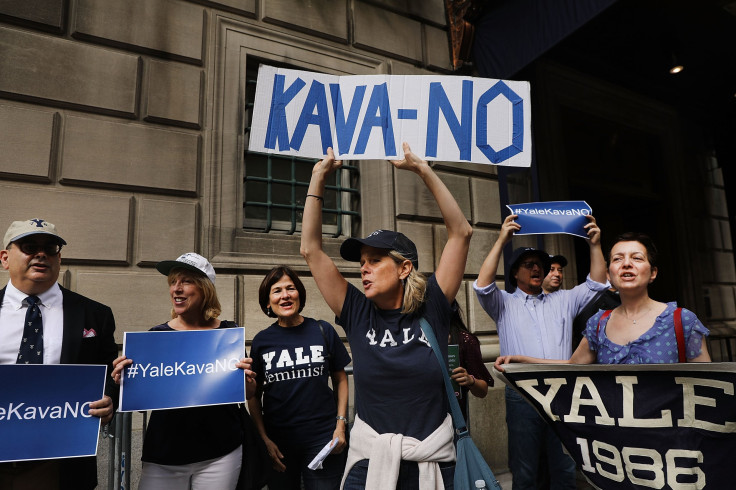Kavanaugh Nomination Opposed By Law Professors For ‘Lack Of Judicial Temperament’

A letter to the U.S. Senate signed by over 500 law professors from around 100 law schools said Supreme Court nominee Brett Kavanaugh’s conduct as he testified before the Senate Judiciary Committee on Thursday was not in accordance with the “judicial temperament” expected of a judge and therefore disqualifies himself.
“We are law professors who teach, research and write about the judicial institutions of this country. Many of us appear in state and federal court, and our work means that we will continue to do so, including before the United States Supreme Court,” the letter said. “We regret that we feel compelled to write to you to provide our views that at the Senate hearings on Thursday, Sept. 27, 2018, the Honorable Brett Kavanaugh displayed a lack of judicial temperament that would be disqualifying for any court, and certainly for elevation to the highest court of this land.”
The letter was talking about the emotional speech made by Kavanaugh during the committee hearing on sexual misconduct allegations against him. Signatures were collected on the letter via a Google forum which will be up until Thursday noon, after which the letter will be submitted to the Senate.
Many high-profile law professors, including at least eight from Yale Law School where Kavanaugh obtained his law degree from, have already signed the letter. It accused Kavanaugh of becoming “repeatedly aggressive with questioners” instead of remaining open to the questioning based on sexual assault allegations made by professor Christine Blasey Ford and other women against him.
At the hearing, an angry and tearful Kavanaugh claimed the allegations were “a calculated and orchestrated political hit” by Democrats. In the letter, the legal experts said Kavanaugh should have tried to understand that the committee needed to understand and investigate the facts surrounding the allegations before they cast the vote to make him the Supreme Court judge.
“Instead of trying to sort out with reason and care the allegations that were raised, Judge Kavanaugh responded in an intemperate, inflammatory, and partial manner, as he interrupted and, at times, was discourteous to questioners,” the letter said.
It cited two statutes governing bias and recusal whereby a judge is required to step aside if he or she is at the risk of being perceived as being unfair.
“As this Congress has put it, a judge or justice ‘shall disqualify himself in any proceeding in which his impartiality might reasonably be questioned,’” the letter said. “These statutes are part of a myriad of legal commitments to the impartiality of the judiciary, which is the cornerstone of the courts.”
The signatories said despite having “differing views about the other qualifications of Judge Kavanaugh”, they now agreed that he “did not display the impartiality and judicial temperament requisite to sit on the highest court of our land.”
After the hearing, a week-long FBI investigation into the allegations by Ford, who stated that he pushed Blasey into a room, pinned her on a bed, sexually assaulted her, and covered her mouth when she tried to scream while at a gathering of high school friends, was announced. Kavanaugh denied the allegation. He also denied allegations by two other women who accused him of sexual misconduct.
© Copyright IBTimes 2025. All rights reserved.





















